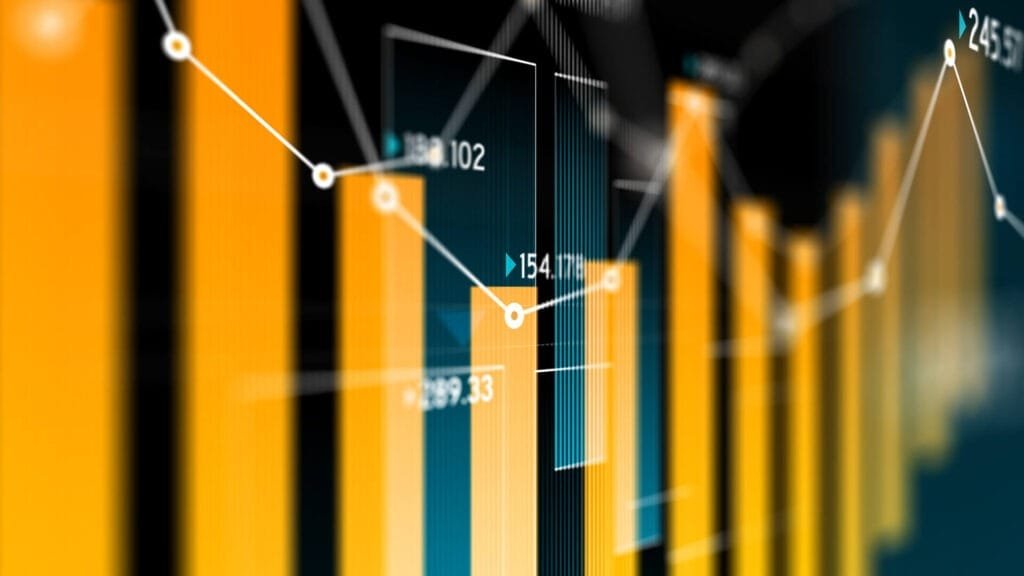In a show of growing trust from investors and renewed energy in the Ghana’s capital market, the Ghana Stock Exchange (GSE) has crossed a monumental threshold— its market capitalization now stands at an unprecedented GHS143.5 billion. Achieved at the close of July 2025, this milestone marks a defining moment in the evolution of Ghana’s capital market, symbolizing not only the vitality of the local bourse but also the broader resilience of the Ghanaian economy.
It signals a return to form for a market that, in the not-too-distant past, was grappling with pandemic-induced slowdowns, debt overhangs, and sluggish investor activity. For market participants and regulators alike, this achievement represents a victory over uncertainty and a renewed sense of purpose.
The jump in market capitalization— from GHS137.3 billion in June to GHS143.5 billion in July— represents a staggering GHS6.2 billion gain in just one month. This kind of growth within such a short timeframe is rarely accidental; rather, it points to the deepening confidence investors now place in listed companies and in the economy as a whole. It reflects not just speculative optimism, but sustained buying interest in fundamentally sound stocks.
Institutional investors, high-net-worth individuals, and retail traders alike are clearly responding to a market environment characterized by improved monetary stability, regulatory transparency, and corporate earnings growth. The GSE’s stellar performance also mirrors investor expectations for continued economic expansion, low inflationary pressure, and political stability heading into 2026.
More importantly, the achievement highlights how far the Ghanaian stock market has come in terms of depth and sophistication. The sustained rise in valuation is underpinned by the growing influence of local institutional investors, expanding participation from retail investors through digital platforms, and the successful listing performance of key sectoral players— particularly in finance, telecommunications, and ETFs.
Indices on Fire: GSE-CI and GSE-FSI Signal Market Strength
The GSE Composite Index (GSE-CI)— widely regarded as the primary barometer of overall market performance— closed July 2025 at 6,776.09 points, reflecting a month-on-month gain of 8.48% and an eye-catching year-to-date return of 38.61%. Such a consistent upward trajectory not only exceeds investor expectations but also places Ghana’s stock market performance well above regional averages.
The GSE-CI’s movement speaks volumes about the positive sentiment circulating within the equity space, driven largely by increased trading in fundamentally strong stocks and renewed interest from both domestic and foreign investors.
Equally noteworthy is the continued strength of the GSE Financial Stocks Index (GSE-FSI), which closed the same month at 3,422.89 points, representing a 1.48% month-on-month gain and an impressive 43.77% return since the start of the year. This index, which focuses specifically on listed banking and insurance stocks, is proving to be the beating heart of the rally on the GSE. The stellar performance of financial equities is not accidental— it follows ongoing structural reforms, recapitalization efforts, and improved earnings in the sector, especially in the wake of the Domestic Debt Exchange Programme (DDEP). These reforms have restored investor confidence, providing a solid foundation for financial institutions to deliver consistent value.
Together, the rising GSE-CI and GSE-FSI represent more than just technical gains— they indicate a deep, broad-based rally driven by sound fundamentals and improved corporate disclosures. For institutional investors, these figures provide the reassurance that Ghana’s capital market is not just rebounding, but evolving. For retail investors, the numbers present an opportunity to engage with a maturing market offering real returns.
Mid-Year Pulse: A Market in Overdrive
Halfway through 2025, the Ghana Stock Exchange (GSE) demonstrated strong momentum, signaling a period of sustained performance and investor confidence. By the close of June, the benchmark GSE Composite Index (GSE-CI) had risen to 6,245.66 points, marking a solid 27.76% year-to-date (YTD) gain.
This upward trajectory was fueled by renewed investor interest, positive corporate earnings reports, and relative macroeconomic stability. Equally impressive was the GSE Financial Stocks Index (GSE-FSI), which reached 3,371.40 points, translating into a remarkable 41.61% YTD growth— a clear indication of the financial sector’s robust recovery by mid-year and growing investor trust in banking and insurance equities.
These performance metrics not only underscored the resilience of Ghana’s equity market but also positioned the GSE as Africa’s best-performing bourse in the first half of 2025. The strong gains across both indices reflected the success of market reforms, improved governance practices among listed companies, and increased participation by both local and foreign investors.
Financial equities continued a silent but consistent rally— proof that smart investors are still loading up on quality banking and insurance stocks, even when the broader market takes a breather.
Quarter 1: The Rally That Set the Tone
The foundation for this record-breaking July performance was laid much earlier. In Q1 2025, the Ghana Stock Exchange (GSE) was already stealing the spotlight across the West African sub-region. A revitalized macroeconomic environment, coupled with improving investor sentiment, helped set the stage for a powerful rally. Confidence returned gradually to the equities market after a turbulent couple of years, with both institutional and retail investors beginning to reposition themselves for long-term growth. This newfound momentum signaled a broader recovery in Ghana’s capital markets.
According to the March 2025 Equities Market Report, the GSE index surged over 30% in Q1, making it the best-performing securities market in West Africa during that period. The GSE Financial Stocks Index (GSE-FSI) gained an impressive 28.5%, while the broader GSE Composite Index (GSE-CI) wasn’t far behind with a 27.19% gain in the same quarter. Notably, these gains were achieved across diverse sectors, showing widespread market strength rather than isolated upticks.
Interestingly, this rally unfolded despite a sharp drop in share volumes. In Q1, only 61.3 million shares were traded, marking a steep 75.87% decline from Q1 2024, when 254.2 million shares changed hands. This plunge in volume might have initially suggested waning interest, but a deeper look reveals a shift in trading dynamics. Investors were increasingly focusing on the quality and stability of stocks rather than speculative volume plays. Consequently, the market witnessed a significant uptick in average transaction values, pointing to increased investor discernment and a maturing investment climate.
Yet, despite the drop in share volumes, the value of trades rose by 29.28% year-on-year to GH¢473.2 million. This seeming contradiction underscores a fundamental shift in strategy: value over volume. Investors appeared more willing to put significant capital into fewer, high-quality stocks rather than spreading their bets widely. It also speaks to the improved corporate governance, profitability, and dividend policies among GSE-listed firms— factors that drew attention from both domestic and foreign participants. This recalibrated approach to investment likely laid the groundwork for the explosive performance witnessed in July 2025.
The nature of trading on the GSE is evolving. The boom in high-value, low-volume trades suggests that institutional and informed retail investors are prioritizing blue-chip and fundamentally strong stocks over speculative, high-volume equities.
ETFs— particularly Gold ETFs— topped value charts in Q1 with GH¢139 million traded, representing roughly 9% of the total. MTN Ghana followed with GH¢46.9 million, while Access Bank contributed 4.8% of the market value.
In terms of volume, MTN led with 14.8 million shares, followed by CAL Bank (2.6 million), ETI (2.3 million), and Access Bank (600,000). These patterns reveal a market maturing in both investor behavior and corporate transparency.
Average daily trading volume in Q1 2025 fell sharply to 1.02 million shares, compared to 4.09 million in Q1 2024. Yet, daily value traded increased to GH¢7.89 million, again confirming that fewer but higher-value trades are becoming the norm.
The divergence of volume and value is more than a technical footnote— it is a strong indicator of confidence. Investors are willing to pay more for shares in companies they trust. This confidence is essential for long-term market sustainability.
March 2025, in particular, was revealing. The GSE recorded 22 million shares traded, a massive 89.48% decline from 208.7 million shares in March 2024. However, the value of trades stood at GH¢201.9 million, only 35.59% down from the previous year. The numbers again underline the trend— less speculative frenzy, more strategic investment.
At the end of Q1, the GSE’s market capitalization stood at GH¢136.99 billion, a 23.03% increase since the start of the year. Domestic market capitalization also increased significantly— by 26.98% to GH¢78.57 billion, propelled by gains in large-cap local stocks. By the end of June, market capitalization had settled at GHS137.3 billion before exploding to GHS143.5 billion in July.
What’s Driving the Momentum?
The Ghana Stock Exchange is currently experiencing an impressive surge in performance, and this momentum is being driven by a confluence of economic, corporate, regulatory, and investor-related factors. At the macroeconomic level, Ghana’s ongoing fiscal and monetary reforms are beginning to bear fruit. Inflation, which had posed a significant threat to investor confidence in recent years, is gradually easing. Interest rates are also stabilizing, providing more predictable conditions for both businesses and investors. Meanwhile, the Ghanaian cedi has shown signs of strengthening, reducing currency risk and enhancing the appeal of local investments. Collectively, these macroeconomic improvements are creating a more favorable and stable environment for capital markets to thrive.
Beyond macroeconomic factors, corporate resilience is playing a pivotal role in sustaining the GSE’s momentum. Following the turbulence of the COVID-19 pandemic, many Ghanaian firms—especially financial institutions— have undertaken governance reforms to improve transparency, efficiency, and operational performance. The result has been stronger earnings reports and a rebound in investor trust. Improved corporate disclosures and board accountability have reassured stakeholders that listed companies are being managed prudently. This newfound confidence is translating into increased trading volumes and more consistent inflows into the equity market.
On the regulatory front, the Ghana Securities and Exchange Commission (SEC), in collaboration with the GSE, has stepped up efforts to enforce compliance and adopt digital innovations. These reforms are enhancing the integrity, transparency, and competitiveness of the market. The introduction of technology-backed surveillance systems, streamlined listing requirements, and improved investor protection mechanisms have collectively made the GSE more attractive to both domestic and foreign investors. These regulatory upgrades are part of a broader strategy to deepen the capital market and align it with international best practices.
Finally, the rise of retail investors is injecting fresh energy into the market. Thanks to the proliferation of digital trading platforms and targeted financial literacy campaigns, a new wave of local investors is emerging. These individuals, many of whom are young and tech-savvy, are increasingly embracing long-term investment strategies. This trend is not only diversifying the investor base but also reducing the historical overreliance on institutional and foreign investors. As more Ghanaians recognize the wealth-building potential of the stock market, retail participation is expected to continue growing— further cementing the GSE’s upward trajectory.
Africa Context: Ghana Stands Tall
While developed markets like the U.S. and Europe grapple with inflation volatility and cooling economies, Ghana is charting a different path. The GSE’s YTD performance places it among Africa’s elite exchanges, rivalling the Johannesburg Stock Exchange (JSE), the Nigerian Exchange (NGX), and the Nairobi Securities Exchange (NSE).
In an era where many African exchanges are struggling with liquidity and capital flight, Ghana is witnessing capital inflows, largely from domestic sources but increasingly from global frontier market funds.
The road ahead looks promising, but not without challenges. If the current pace continues, the GSE could close 2025 with a market capitalization above GHS150 billion, and possibly a GSE-CI above 7,000 points. However, several risks could temper this outlook.









